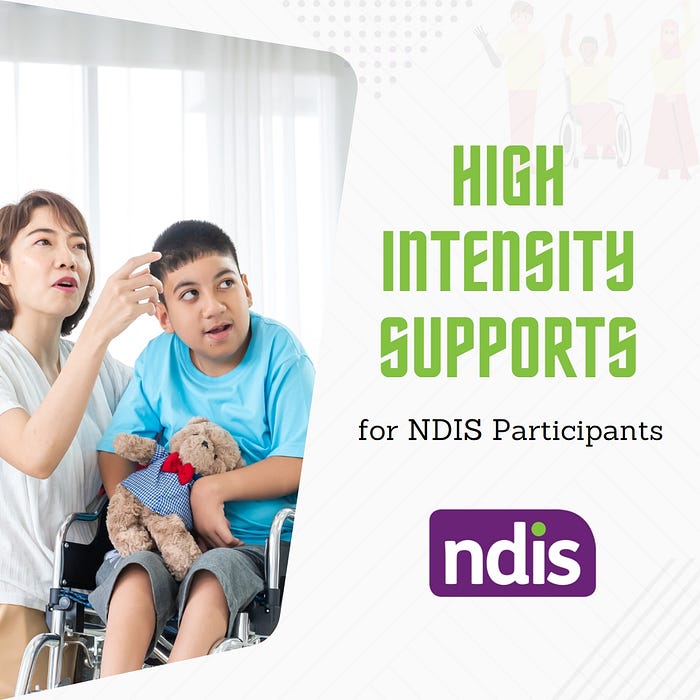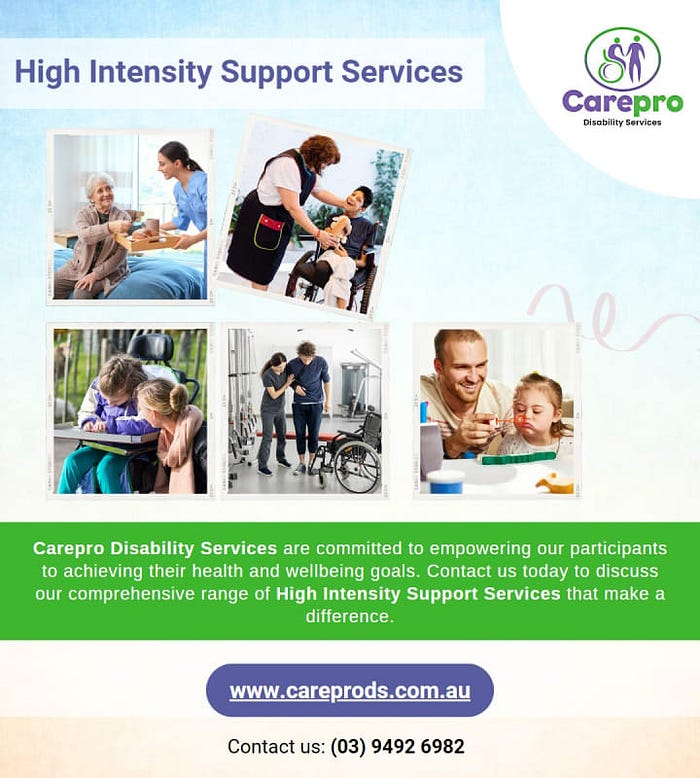In recent years, there has been a growing recognition of the pivotal role that community nursing care plays in enhancing the quality of life for individuals with National Disability Insurance Scheme (NDIS) plans. As a cornerstone of holistic healthcare, community nursing care provides a range of indispensable services that are tailored to the unique needs of each individual. From high-intensity support to disease management, palliative care to wound care, community nursing offers a plethora of benefits that significantly contribute to the wellbeing and independence of NDIS participants.

High Intensity Supports
One of the primary advantages of community nursing care for individuals with NDIS plans is the provision of high-intensity care. For individuals with complex health conditions or disabilities, such support becomes essential in enabling them to lead fulfilling lives. Community nursing professionals are equipped with specialized skills to manage and address a wide spectrum of health needs. They serve as a bridge between the medical system and the patient’s home environment, ensuring that the individual’s health and wellbeing are comprehensively managed.
Disease Management:
Community nursing care excels in disease management, a critical aspect of maintaining the health of individuals with disabilities. Chronic conditions require ongoing attention and proactive intervention, both of which are seamlessly integrated into community nursing practices. Whether it’s coordinating medication regimens, monitoring vital signs, or providing health education, community nurses play a crucial role in preventing complications and enhancing the overall quality of life for NDIS participants.
Palliative Care and Pain Management:
In cases where palliative care is needed, community nursing care steps in with a compassionate and multidimensional approach. The focus shifts towards providing comfort, managing pain, and ensuring the individual’s dignity is upheld. With a deep understanding of the physical, emotional, and psychological needs of patients, community nurses collaborate closely with other healthcare professionals and the family to create a support system that eases the journey for both the individual and their loved ones.
Specialized Care Services:
Community nursing care encompasses a wide array of specialized services that cater to the unique requirements of each individual. Services such as stoma care, wound care, catheter and continence management, are executed with a high level of skill and sensitivity. These services not only address physical needs but also contribute to the person’s self-esteem, promoting a sense of normalcy and autonomy despite their health challenges.
Holistic Approach:
What sets community nursing care apart is its holistic approach to healthcare. Rather than focusing solely on medical treatments, community nurses take into account the broader context of an individual’s life. This includes their social environment, family dynamics, personal goals, and cultural considerations. By understanding these factors, community nurses create care plans that are truly person-centered, enhancing the person’s sense of agency and control over their own health.
Empowerment and Independence:
Perhaps one of the most significant benefits of community nursing care for NDIS participants is the empowerment and promotion of independence. Through education and skill-building, community nurses enable individuals to take an active role in their healthcare management. This newfound knowledge empowers them to make informed decisions, advocate for their needs, and navigate the healthcare system more effectively.
Collaboration with Disability Service Providers:
Community nursing care operates in close collaboration with disability service providers. This partnership ensures a seamless continuum of care that is centered around the individual’s wellbeing. The exchange of information, expertise, and resources between these two pillars of support enhances the efficiency and effectiveness of the care provided. It also minimizes the gaps in service delivery, promoting a comprehensive approach to the complex healthcare needs of NDIS participants.

Promoting Wellbeing Beyond Health:
Community nursing care recognizes that wellbeing extends beyond the mere absence of illness. It encompasses emotional, social, and psychological aspects that are crucial for a fulfilling life. Community nurses often act as confidantes and advocates, offering a listening ear and emotional support to individuals and their families. This holistic support fosters a sense of belonging and security, which are vital components of overall wellbeing.
Cost-Efficient and Personalized Care:
Community nursing care offers a cost-efficient alternative to prolonged hospital stays or frequent visits to medical facilities. Additionally, community nurses tailor their services to the specific needs and preferences of each individual, ensuring that the care provided is both effective and personalized.
Conclusion:
In the realm of healthcare for individuals with NDIS plans, High Intensity Care NDIS stands as a beacon of support, guidance, and empowerment. Through its holistic approach, specialized services, and collaboration with disability service providers, it enriches the lives of those with disabilities by enabling them to achieve higher levels of independence, comfort, and dignity. As we continue to recognize the invaluable role of community nursing care, we move closer to a society where every individual, regardless of their abilities, can access the highest standard of healthcare and lead a life of purpose and fulfillment.
In the realm of healthcare for individuals with NDIS plans, High Intensity Care NDIS stands as a beacon of support, guidance, and empowerment. Through its holistic approach, specialized services, and collaboration with disability service providers, it enriches the lives of those with disabilities by enabling them to achieve higher levels of independence, comfort, and dignity.

